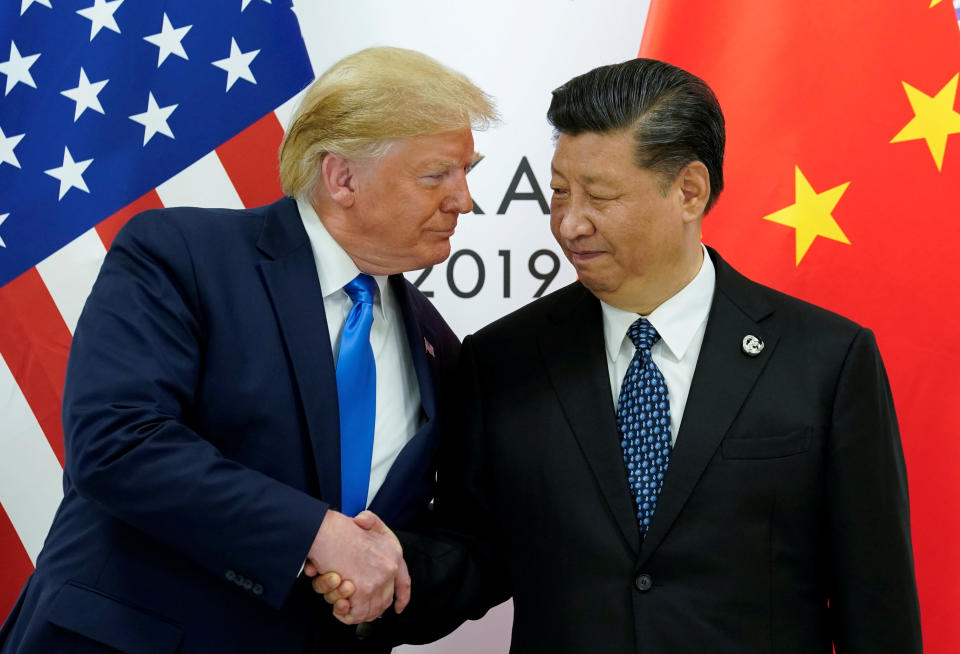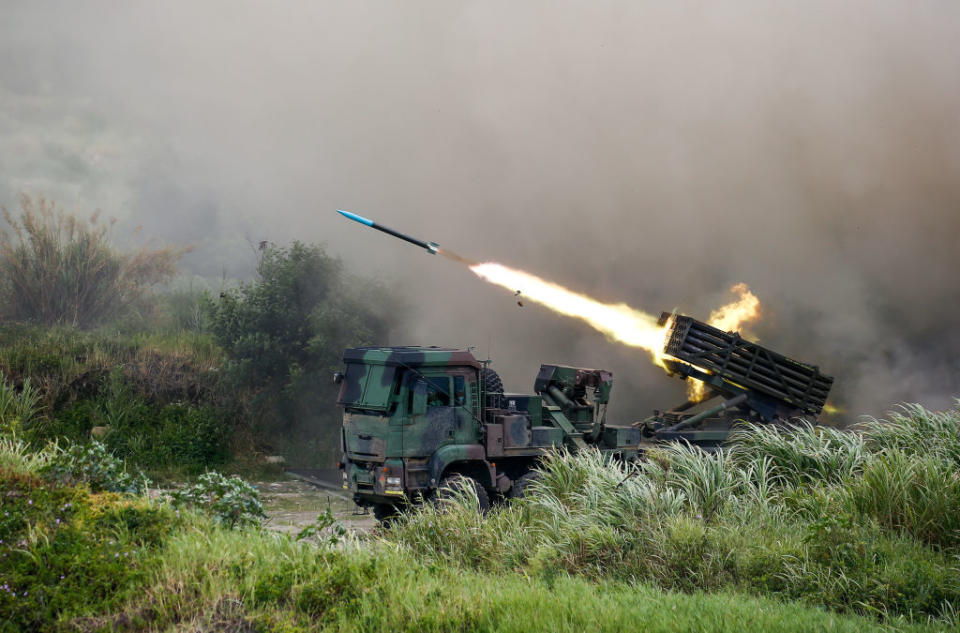The big test waiting for winner of US presidential election
There is a dire challenge looming for the winner of the US presidential election in November – one that will determine the nature of the relationship between the world’s two biggest economies.
For years, China has made bold assertions that it would reclaim Taiwan and put the autonomous country on a path to be ruled under the auspices of Beijing.
The issue – seen as a flashpoint for potential conflict – is likely to come to a dangerous crossroads during the next president’s term, sparking fears of a military crisis in the next 12 months.
Professor Joh Blaxland from the Strategic and Defence Studies Centre at the ANU sees parallels between the situation now and the run-up to the Korean War in 1950. In January of that year, as the Cold War was heating up, the US Secretary of State Dean Acheson delivered a famous speech in which he didn’t include South Korea in America's defence perimeter in the Pacific.
“I think there is a similarity in Taiwan today and Korea in 1950,” Prof Blaxland told Yahoo News Australia in a recent interview.

“The Secretary of State declared the US would not defend the country but when the North Koreans invaded, they felt compelled.”
Even if the US is reticent to intervene against a Chinese move to reabsorb Taiwan, public sentiment could force the hand of the White House to defend the country.
“This is what happens in a democracy, they respond to domestic democratic pressure,” Prof Blaxland said.

In a speech last year marking 40 years since the start of improving ties, Chinese President Xi Jinping urged the people of Taiwan to accept it “must and will be” reunited with China. He also warned that China reserved the right to use force in doing so.
If Joe Biden wins the US election in November, Prof Blaxland expects the Chinese Communist Party to test him on the issue early in his presidency.
‘No return to China’s peaceful rise’
Peter Jennings, the executive director of the Australian Strategic Policy Institute, warned on Tuesday that a potential military conflict could unfold within the next 12 months in the region.
“We've seen aggressive moves on the part of the Chinese military to move into Taiwanese air space and sea space. All of this is building the foundations for a potential military crisis. I don't think in the next decade, I think in the next 12 months,” he told the ABC in a TV interview this morning.
Aussie journalists pulled out of China in 'extraordinary' step
US election: Donald Trump 'landslide' victory predicted by political scientist
'Won't be scared to fight': China's menacing warning as tensions rise
Given the potential for a transition in US leadership, Mr Jennings said it could come to pass “even sooner” if Chinese leader Xi Jinping seeks to take advantage of the uncertainty.
“Xi Jinping is stoking nationalist sentiment in China, by building the sense of nationalist anger around Taiwan and around claims to the South China Sea,” he said.
“So don't be surprised if what you see is increasingly aggressive military manoeuvrings which leads perhaps to a miscalculation or an accident and a ship gets sunk or an aircraft shot out of the sky.
“There's no return to what used to be called the peaceful rise,” he added.
Taiwan ‘at intersection of the two ominous trends’
It Donald Trump wins a second term in November, Taiwan leaders might not sleep so well at night, says author and world affairs columnist Frida Ghitis.
Writing for the Washington Post in July, she openly wondered what the future holds for Taiwan now that China has crushed dissent in Hong Kong and prematurely reclaimed control over the island.
“The answer might lie in the outcome of the US presidential election in November,” she wrote.
“A free Taiwan might not be able to survive a second Trump administration.”
While the White House has legally committed itself to protecting Taiwan, the president’s mercurial approach to foreign affairs and his affinity for authoritarian leaders could provide the opening for China to forcefully take control of the country.


“President Trump’s policy of international retreat and disregard for allies, alongside Xi’s growing assertiveness and expansionism, put Taipei at the intersection of the two ominous trends,” Ms Ghitis warned.
“All considered, Biden looks like a safer bet than Trump for the survival of Taiwan’s independence from the increasingly aggressive regime in Beijing.”
Biden win will refocus US on Chinese engagement
Jake Sullivan, the senior policy adviser to Democratic presidential nominee Joe Biden, says America’s pivot towards China and the Pacific under the Obama administration was the correct approach.
The US must continue to escalate its engagement on security, economics and diplomacy with China, he said in an interview published Monday with the Lowy Institute.
“Times have changed, and the need for us [the US government] to take really rigorous steps to ensure that we are managing the China-US relationship effectively is going to be one of the most acute foreign policy challenges of a Biden administration if he’s lucky enough to win,” Mr Sullivan said.
“The rise of China is at or near the top of the list of big global challenges that we all need to be working on.”
Do you have a story tip? Email: newsroomau@yahoonews.com.
You can also follow us on Facebook, Instagram and Twitter and download the Yahoo News app from the App Store or Google Play.




